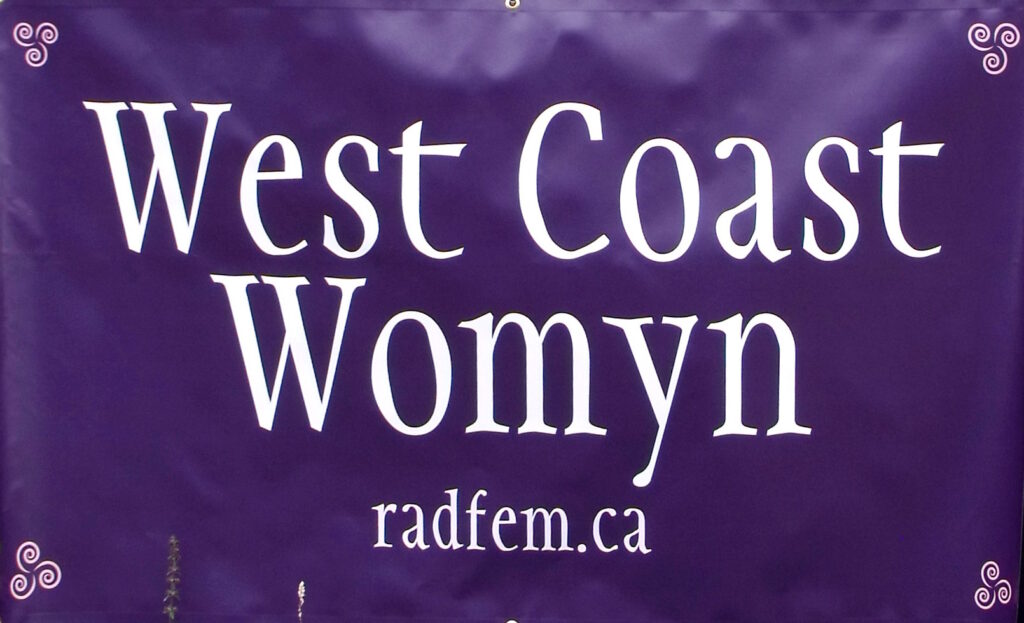It’s a recurring debate. Should progressive groups be allowed to block people for ideological or other reasons? Aren’t we supposed to be inclusive and open to everyone? The old-boys club, ivory tower, gatekeeper mentality is what we’re fighting, right?
This question is often phrased as a demand by those insisting on inclusion.
Take the angry racist dudes who were asked to leave an Occupy camp in a public square. They were furious at being called out and retaliated with accusations that organizers were violating their rights and discriminating against them as white males. Are their complaints legit?
Or how about Len Barrie, developer of Bear Mountain resort and destroyer of SPAET’s caves? Long before he became the most-hated developer on Vancouver Island, he was kicked out of the Royal Colwood Golf Club for bad behaviour. Barrie’s subsequent lawsuit claimed as long as he pays his dues, he should have the benefits of the club. The club violated his rights, he said, and he demanded reinstatement and damages. Was he right?
The thing is, when trouble-makers insist on joining a group, the resulting conflicts can tear it apart. The anti-Occupy dudes harassed women, picked fights about “white rights,” and verbally abused those who disagreed with them. But the other campers got together and threw the angry dudes out.
Barrie behaved like an aggressive entitled asshole, and he got thrown out of his club, which is what he deserved.
We don’t just have the right, we have the responsibility to bar people who would disrupt and derail our work. The concept is a long-standing principle of natural justice, one that is upheld by the courts and by federal law.
Advocacy groups like social justice organizations are based on shared values of mutual aid and solidarity. Every day we make principled decisions about what events and groups to support or oppose. The same goes for political parties. The New Democrats are not obligated to accept Young Conservatives. Peace groups don’t have to allow military recruiters in the door. If it were otherwise, no one would get anything done – they would just be crashing each others’ parties.
Similarly, private clubs and informal networks are based on mutual respect and camaraderie, as well as shared goals and ideals.
Mind you, those who feel they’re being discriminated against have legal recourse, like filing a human-rights complaint. And here’s what they’ll learn: they don’t have the right to be part of a group they clash with. If the purpose of the group is to advocate for indigenous rights, for example, the members are obliged to put indigenous people first, even to the extent of excluding others.
The Canadian Human Rights Act is a federal statute enacted by Parliament in 1977. Each province has its own equivalent, and Section 41 of the BC Human Rights Code states:
If a charitable, philanthropic, educational, fraternal, religious or social organization or corporation that is not operated for profit has as a primary purpose the promotion of the interests and welfare of an identifiable group or class of persons characterized by a physical or mental disability or by a common race, religion, age, sex, sexual orientation, gender identity or expression, marital status, political belief, colour, ancestry or place of origin, that organization or corporation must not be considered to be contravening this Code because it is granting a preference to members of the identifiable group or class of persons.
In the case of private or for-profit clubs, like Barrie’s, the law is equally clear. In his decision on Barrie v. Royal Colwood Golf Club (2001 BCSC 1181), Justice Edwards ruled:
[Quoting Lee v. Showmens Guild] “In the case of social clubs, the rules usually empower the committee to expel a member who, in their opinion, has been guilty of conduct detrimental to the club, and this is a matter of opinion and nothing else. The courts have no wish to sit on appeal from their decisions on such a matter any more than from the decisions of a family conference. They have nothing to do with social rights or social duties.”
In short, the courts are reluctant to reinstate a member of a social club when other members have decided that member has acted in a manner unbecoming a member, for the obvious reason that a club must be collegial.
In social clubs, goodwill among the members is important and the opportunity for cordial relations among members is a primary reason for these clubs’ existence.
Barrie lost his case because he lost the respect of his fellow club members. He behaved like a jerk, destroyed property, and lied about it. The judge noted that even if he ordered the club to take Barrie back, they would just kick him out again.
Of course, a group that exercises its right to make such decisions may be subject to harsh criticism. Whites-only groups – and there are many – are correctly labeled “white supremacist” for excluding people of colour. The angry dudes were less accurate in calling Occupiers “fascist” and “racist” when the campers refused to accommodate their white-supremacist agenda.
There’s an obvious difference between those two examples. White supremacists want to keep oppressed groups down. Occupy supports oppressed groups rising up. One seeks social justice, the other a return to greater structural inequality.
The bottom line: People who are united for a common goal, for camaraderie, or for the interests of a particular group, can’t be compelled to admit those who don’t fit their purpose. So if people don’t like you or don’t share your principles, you have no legal right to force them to accept you into their non-profit group or private club. You don’t have the right to crash their party. This concept applies across the board to everyone – all-black sororities, the Communist Party, men’s support groups, and radical feminist organizations. And it always has.


